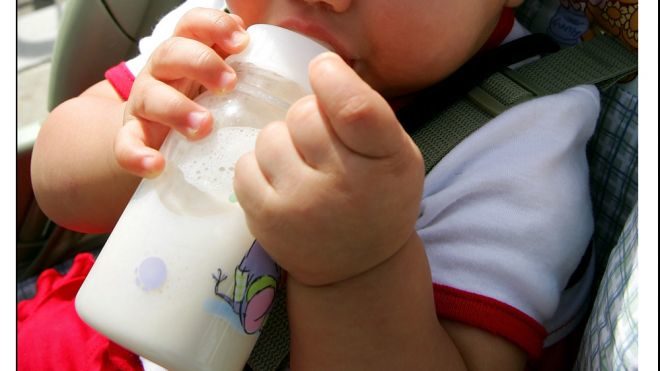Marina | February 16, 2014 | Parenting |
 There are two schools of thought when it comes to feeding babies. Some women feel that babies need to be taught about schedules – when to eat, when to sleep and so on – and so feed and put their babies to sleep regardless of what their baby might actually want or need. Other women feed on demand and don’t do the ‘cry-it-out’ sleep routine.
There are two schools of thought when it comes to feeding babies. Some women feel that babies need to be taught about schedules – when to eat, when to sleep and so on – and so feed and put their babies to sleep regardless of what their baby might actually want or need. Other women feed on demand and don’t do the ‘cry-it-out’ sleep routine.
According to research, this latter group of women tend to have babies who grow up to have higher IQs and do better at school. Children at eight years old who were fed on demand as babies perform better on IQ tests by 4 to 5 points compared to eight-year-olds who were fed on a schedule.
They also performed better in national tests like SATs at age 7, 11 and 14.
This was the finding by researchers from Essex and Oxford Universities.
The researchers took account of environmental factors like how well educated or wealthy the parents were, what gender and age within the year group the children were, and what their other parenting styles were like.
Most of the demand-fed babies were breastfed (it’s difficult to demand feed with bottles, especially if you’re out and about and not sure how much to take with you).
If 4 to 5 points on an IQ test doesn’t sound like much, one of the researchers said, “The difference in IQ levels of around four to five points, though statistically highly significant, would not make a child at the bottom of the class move to the top, but it would be noticeable.” So a child ranked at 15th out of 30 children might be more like 11th or 12th if they had been demand-fed.
The research also reported that mums who fed their babies to a schedule enjoyed being a parent more and got more sleep. The researchers commented, “There appears to be a trade-off: children who were fed to a schedule go on to do less well in attainment and IQ tests, at all ages from five to 14.”